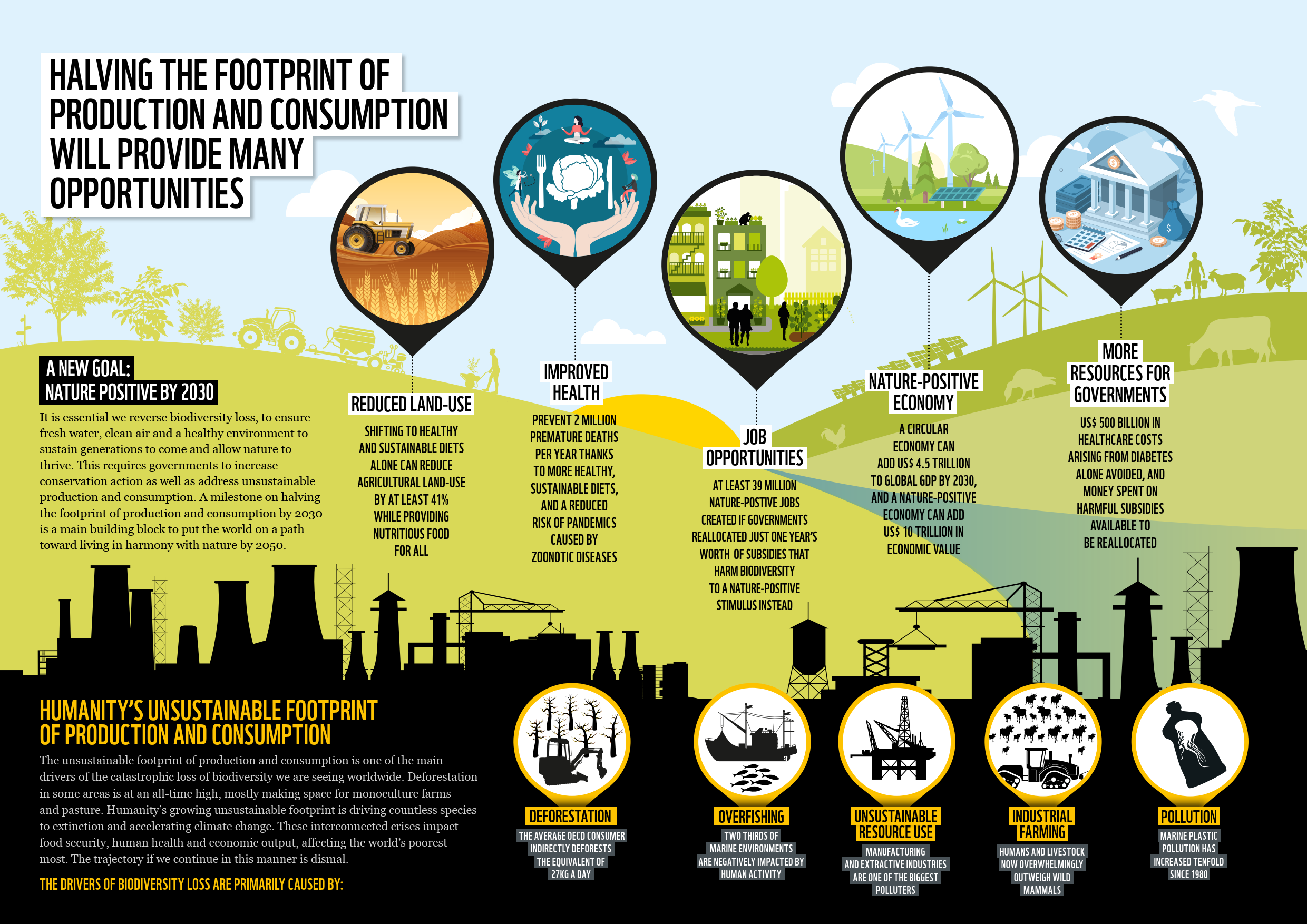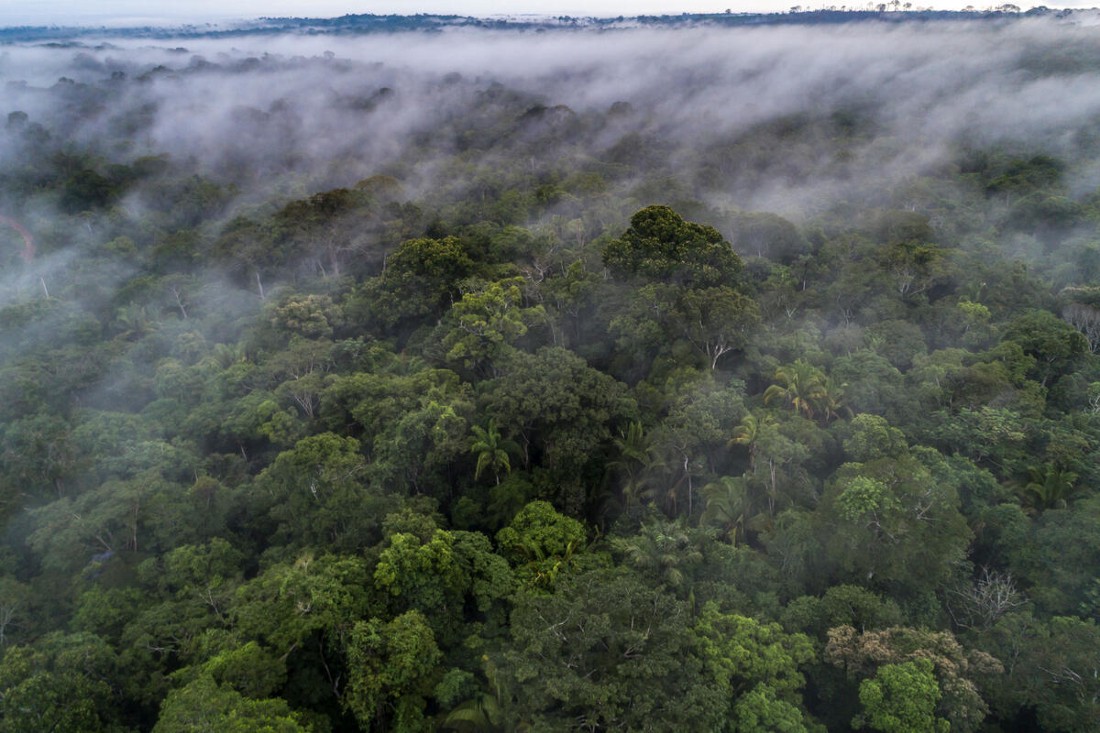We are losing biodiversity at alarming rates. The latest research shows 69% of populations have declined since 1970. This is causing significant harm to our natural world, food security, human health and economic output, which disproportionally falls on the world’s poorest.
Yet it is human activity that is driving biodiversity loss. The way we produce and consume materials and products - for our food, buildings, infrastructure - is known as our ‘footprint’ on the world.
Global food systems are the number one driver of biodiversity loss. This has to change. For a sustainable world for future generations we must tackle our unsustainable production and consumption.
Photo: © Andre Dib / WWF-Brazil


The global biodiversity framework offers a unique opportunity to agree on the global, collective action required to reduce the footprint of our production and consumption and to address the direct and indirect drivers of biodiversity loss. It should include a goal to halve the global footprint of production and consumption by 2030 and remain within planetary boundaries afterward. We can only successfully reverse nature loss by 2030 through just and nature-positive transformations of our agriculture and food systems, forestry, fisheries, energy and mining, infrastructure, construction and manufacturing. Ambitious targets and ensuring key stakeholders' collective action will be crucial to establish change at every level.
At the Convention on Biological Diversity’s COP15 in Montreal this December, countries have an opportunity to set our world on the path to a full recovery. A goal to halve the global footprint of production and consumption globally will guide countries to securing a nature-positive world by 2030.
Read more about nature positive.

WWF calls for a milestone to halve the footprint of production and consumption by 2030 in the global biodiversity framework.
Integrating the sustainable use objective of the CBD in the post-2020 global biodiversity framework.
Accelerating food systems transformation through the post-2020 global biodiversity framework.
A proposed framework for measurable outcomes & actions to tackle humanity's unsustainable footprint of production and consumption.

Why a few words in Montreal are key to ending deforestation
Ending the destruction of forests is critical to the CBD’s goal of reversing biodiversity loss for a nature-positive world and efforts to prevent catastrophic climate change.
Halving the footprint of production and consumption is critical to protecting nature and ourselves
A key driver of nature loss is humanity’s footprint of production and consumption
Subscribe today for updates and information about how you can get involved and follow @NatureDeal on Twitter.

© 2017 WWF - World Wide Fund For Nature© 1986 Panda Symbol WWF – World Wide Fund For Nature (formerly World Wildlife Fund)® “WWF” is a WWF Registered Trademark Creative Commons license.